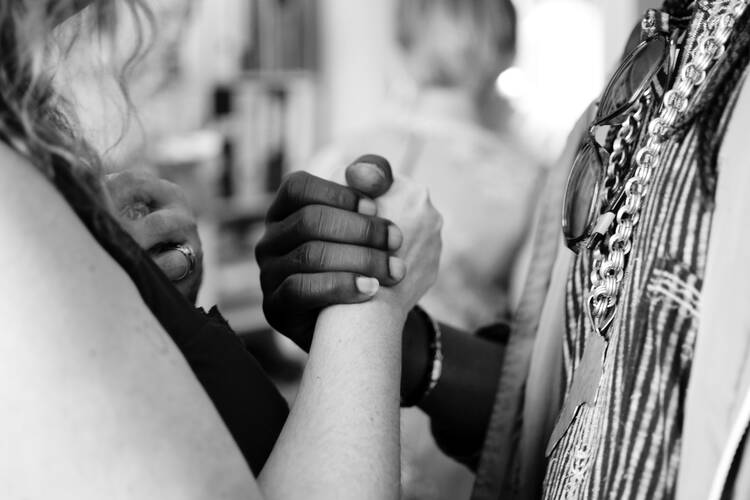Journey with America’s editors as they reflect on Scripture, prayer, fasting and almsgiving both in written form and on “The Word” podcast. Find all the reflections and more Lent resources here.
Subscribe to The Word in Apple Podcasts, Spotify, Google Podcasts or your favorite podcast player and never miss a reflection.
A reading from the Book of Daniel
“Lord, great and awesome God,
you who keep your merciful covenant toward those who love you
and observe your commandments!
We have sinned, been wicked and done evil;
we have rebelled and departed from your commandments and your laws.
We have not obeyed your servants the prophets,
who spoke in your name to our kings, our princes,
our fathers, and all the people of the land.
Justice, O Lord, is on your side;
we are shamefaced even to this day:
we, the men of Judah, the residents of Jerusalem,
and all Israel, near and far,
in all the countries to which you have scattered them
because of their treachery toward you.
O LORD, we are shamefaced, like our kings, our princes, and our fathers,
for having sinned against you.
But yours, O Lord, our God, are compassion and forgiveness!
Yet we rebelled against you
and paid no heed to your command, O LORD, our God,
to live by the law you gave us through your servants the prophets.”
Reflection
No one will accuse the Daniel of going too easy on his fellow Israelites. In today’s first reading, the prophet turns to the Lord God, saying, “We have sinned, been wicked and done evil; we have rebelled and turned from your commandments and your laws.” He admits the scattered people of Israel deserve their plight; “Justice, O Lord, is on your side.”
We humans have a tendency to focus on the negative—the test question we got wrong, the thoughtless comment that stung—so it can be easy to walk away from this reading thinking that the Israelites (and by extension we ourselves) are in pretty dire straights. We should not miss, however, the crucial “but” that follows Daniel’s litany of sins: “But yours, O Lord, our God, are compassion and forgiveness!” Indeed, the verse is bracketed by appeals to God’s mercy. Why else would Daniel be so honest about his people’s shortcomings, if not for his confidence that the Lord would keep his covenant?
Lent is, of course, a time to be mindful of our sins. But we must not lose sight of the whole story as we repent of our shortcomings: that Jesus Christ has already conquered sin and death, and like Daniel, we can turn to the Lord with our whole, imperfect selves, confident in his compassion. Our list of sins may be long; but God’s forgiveness is limitless, and in today’s Gospel, he has given us the key to receiving his mercy: “Forgive and you will be forgiven.”
More from America:








